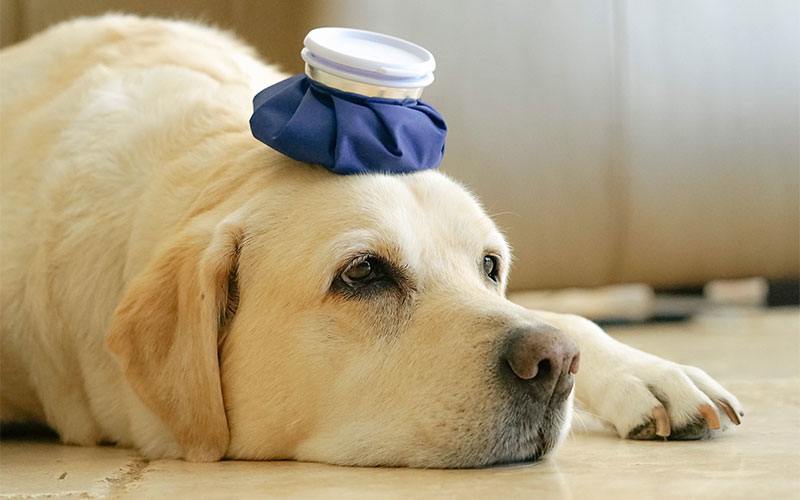Determine the risks related to your dog eating poop. It may seem silly or innocuous, but it can be extremely harmful to your dog’s health. This behaviour can have serious consequences, such as blockages or bacterial infections. Learn about these dangers and how to keep your dog safe.
The Dangers of Poop Eating in Dogs
When dog owners discover their pets eating poop, they often feel appalled and disgusted. Regardless of whether it’s human waste, another dog’s waste, or their own waste, this behaviour is not only repulsive but also possibly dangerous. However, can dogs die from eating poop, and if so, why?
Why Do Dogs Eat Poop?
Dogs may eat poop for a variety of reasons, such as boredom or dietary deficiencies. Among the frequent reasons are:
Boredom: When a dog is bored and has nothing else to do, they may eat the excrement. They might use poop as a way to pass the time or attract attention because they find it interesting or tasty.
Nutritional deficiencies: If a dog is fed poor-quality or imbalanced food, they can supplement their diet with poop. When they don’t have adequate protein, vitamins, minerals, or enzymes, they might look for more of them.
Instinct: Dogs that have ancestors who had to search for food in the wild may have eaten dog poop because of this behaviour. Some puppies might also pick up this habit from their moms, who tidy up by eating their waste.
Anxiety/Stress: Eating poop can be a coping strategy for certain dogs. They may use excrement as a comfort food or a means of camouflaging their scent from predators when they are anxious, afraid, or lonely.
Health Issues: Certain dogs may consume poop due to underlying medical conditions that impact their appetite or digestive system. Dogs with conditions like diabetes, Cushing’s syndrome or exocrine pancreatic insufficiency, for instance, may consume more food or absorb fewer nutrients from it.

Can Your Dog Die from Eating Poop?
Although your dog might not die right away from eating poop, they could become very ill. Poop can include dangerous bacteria, toxins, and parasites that can lead to many health issues, including:
- Digestive Problems: Your dog may experience vomiting, diarrhoea, gas, bloating or constipation as a result of eating poop, which can irritate their stomach and intestines. Dehydration, an imbalance in electrolytes, or even intestinal blockage or perforation can result from these symptoms.
- Infections: Eating poop can expose your dog to pathogens like worms, salmonella, giardia, or E. Coli. Fever, sluggishness, weight loss, anaemia, or harm to organs can result from these. There is a chance that some of these infections could spread to people, endangering the health of your family.
- Toxicology: Eating poop exposes your dog to chemicals, pesticides, and other toxins. These may impact your dog’s heart, liver, kidneys, or nervous system, leading to coma, tremors, seizures, or even death.
How to Prevent Your Dog from Eating Poop?
You should take your dog to the vet for a checkup if you discover that they are eating excrement. If treatment is required, your veterinarian may rule out any underlying medical conditions. To stop or lessen this behaviour, you should also adhere to these suggestions:
Give your dog a healthy, well-balanced diet: Do not give them human food, bones, or leftover table scraps. Instead, make sure your dog receives adequate nutrients from their food. To make their poop less appetising, you can also add supplements like probiotics, enzymes, or pineapple.
Maintain a clean environment for your dog: As soon as you can, pick up and properly dispose of your dog’s waste. Additionally, you can use deterrents to make the poop taste bad, like bitter sprays. Keep your dog away from places where they can access waste, like parks, farms, or litter boxes if they consume the excrement of other animals.
Give your dog enough exercise and stimulation: Engage and amuse your dog with games, toys, or training. Ensure that they engage in enough mental and physical exercise to relieve their boredom and excess energy. When they ignore or leave the poop alone, you can also give them praise or treats.
Reduce your dog’s stress and anxiety: Find and remove any situations, people, or loud noises that may cause your dog stress or anxiety. Give them a cosy, secure area where they can unwind and feel protected. To calm them down, you can also employ relaxing aids like music, aromatherapy, or pheromones.
See a trainer or behaviourist: You might require expert assistance to deal with your dog’s severe or ongoing poop-eating habit. A behaviourist or trainer can assist you in determining the underlying causes of the behaviour and offer practical methods for changing it.
Conclusion:
Dogs who eat poop run serious health risks, including exposure to toxins, infections, and digestive disorders, even though this habit was once thought to be disgusting. On the other hand, proactive steps like making sure the diet is balanced, keeping the surroundings tidy, offering enough stimulation, and taking care of underlying stressors can successfully stop this behaviour. It might be required to consult a veterinarian to control medical issues and put customised treatments into place. Pet owners can ensure the health and well-being of their beloved companions by prioritising preventive strategies and timely intervention to protect them from the potential risks associated with eating poop.
